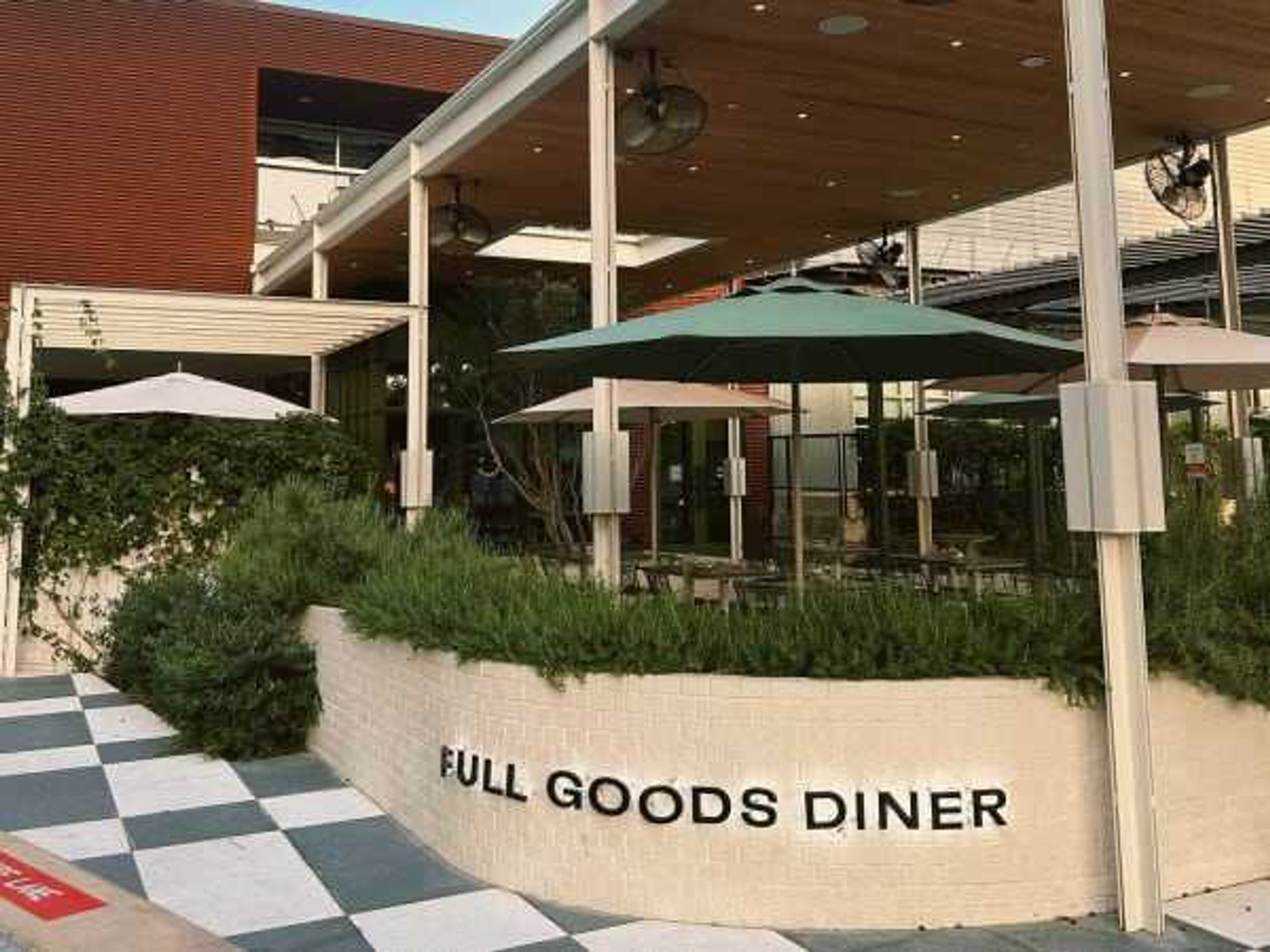on the vine
Can you really grow olives in Texas? Jack Dougherty of Bella Vista Ranch revealshis secrets
 Al Fresco extra virgin olive oil.Photo by Bill Sallans
Al Fresco extra virgin olive oil.Photo by Bill Sallans Bella Vista Ranch owner Jack Dougherty.Photo by Bill Sallans
Bella Vista Ranch owner Jack Dougherty.Photo by Bill Sallans Bella Vista Ranch's olive oil orchard in Wimberley.Photo by Bill Sallans
Bella Vista Ranch's olive oil orchard in Wimberley.Photo by Bill Sallans
With the publication of Tom Mueller's Extra-Virginity: The Sublime and Scandalous World of Olive Oil, the seemingly benign subject of olive oil is a hot topic. CultureMap caught up with Jack Dougherty, the owner of Bella Vista Ranch in Wimberley, one of the first to plant and grow olives in the state of Texas.
Dougherty offers his insight on quality olive oil, the trials of growing olives in Hill Country and the supposed olive oil “industry” here in Texas.
---
What is one of the biggest misconceptions about olive oil?
Freshness is critical. But most people really don’t understand why it is important or what it is. Whether an olive oil is made in California, in Texas, Florida or wherever is irrelevant.
Freshness really has to do with a length of time after the pressing, when the intensity of what is valuable in the olive oil goes down. The integrity of the chemistries that make olive oil good for us are only going to be there when it’s fresh. And the aromatics and flavors that we care so much about are only going to be there when an olive oil is fresh.
"This is not an industry. It’s either people doing something that they think it will make them rich or it’s a passion."
It has been said that Texas has a growing olive industry. What do you think?
This is not an industry. It’s either people doing something that they think it will make them rich or it’s a passion.
This is the most upside-down business plan. You have an insecure source of product, it may or may not be there or and when it is, it may not be of the quality you expect. And the product has a very short shelf life that begins to turn against your quality standards.
There is intense competition with low-priced import olive oils and no rules or regulations for what is required on the label. People go to the grocery store and buy a big bottle of olive oil that appears to be extra virgin cold-pressed olive oil — but that is only on the very edges what it really is.
And then there is the market: How many of the 25 million people in Texas really buy olive oil and use olive oil? Not very many. And how many of those people use really good olive oil? Now we are getting infinitesimal.
Finally, what defines an industry? You have to have a source of product, producers, buyers and a distribution system that works. None of these are in place today.
So why do you do it?
In 1994 I was going to put in a vineyard but couldn’t, at the time, because of liquor laws. I saw a reference for growing olive trees and found it interesting. I’d grown up around olive trees in California, but never farmed them.
When I called A&M to get some advice about growing olive trees in Texas, the man I talked to basically said, “You can’t do it.” That was enough to stimulate me and inspire me to say, “Hey, that’s probably not true.” I recognized early on that it would be a difficult project with a high degree of failure.
"When I called A&M to get some advice about growing olive trees in Texas, the man I talked to basically said, 'You can’t do it.' That was enough to stimulate me and inspire me to say, 'Hey, that’s probably not true.'"
You get to a stage in life when you want to do something different. I worked in computers in Silicon Valley for 29 years, and I wanted a change in lifestyle.
I had three things in mind: I wanted to be able to do the things I did as a kid — go out into the orchard and work. I love doing that. When I started learning about olive oil in the early 90s, I thought it was really a stunning product in terms of all the benefits it brings us. And I like challenges and this was a real challenge.
For me, growing olives has never been about making money. It simply was the medium in which I could achieve a certain lifestyle. It was either olives or grapes… and it ended up being both.
You planted your first trees in 1998. Fourteen years later, have you proved the guy at A&M wrong?
It will take one whole generation to prove that we can grow olive trees consistently in the state of Texas — 20 years. For thousands of years in and around the Mediterranean, the statement was: If you grow olive trees, you work hard and die poor. Your kids work hard and have a decent life. And your grandkids don’t work very hard and make a fortune because they sell the property. That put’s it all in perspective.
At Bella Vista Ranch we are going on 14 years, but we are not there yet. Today, I would not stand up and say that we can grow olive trees in the state of Texas. I don’t think that will be possible to say for another 6-10 years.
What needs to happen in the next 6-10 years?
We need to go through a couple of more severe winters. And we need to have some representation of more than one or two orchards that produces more than one crop every other year.
There has to be consistency. You have to show that you can do it more than one time. You have to produce commercial quantities and the product has to be consistent in its quality. If you don’t have all those things, you don’t have a business. And if you don’t have more than one or two businesses, you don’t have an industry.
You mentioned that olive trees don’t produce consistent and high-quality fruit until they are about 12 years old. Why is this?
When fruit trees are young, their main goal is to grow and be strong. So, all of the energy that is produced through the cycle of the year goes toward producing roots, leaves and branches. When a tree gets to a certain age, which varies from tree to tree, the energy that is being produced from the roots, leaves and the structure begins to be more than what the tree needs to make it grow. It starts putting that surplus energy into fruit production and two things will occur: You will have more fruit, and the fruit will be of better quality.
"Every year we try, depending on the supply that comes from the trees, to make an estate-bottled olive oil, which is one-hundred percent grown, pressed and bottled on this ranch."
It’s expected to have inconsistent output in the first 10 years. We have some olive trees that did not produce an olive for 12 years. It is very important to get olive trees through these early years. In other parts of the world, this is not so difficult, but here in Texas it is because of the irrational changes in temperature in the wintertime.
So tell me about the olive oil you produce here at Bella Vista Ranch.
Every year we try, depending on the supply that comes from the trees, to make an estate-bottled olive oil, which is one-hundred percent grown, pressed and bottled on this ranch. We also produce a blend of olive oil with olives from this ranch combined with olives custom-harvested in California. The olives from California are from older orchards. Both the orchards, the only orchards I buy from, are the source of my trees. I know that these olives are being grown and harvested by a gentleman that has the same quality standards that I have.
What are the challenges to growing olives here in Texas versus California, Spain or Italy?
I can’t speak for Texas at large, because I don’t know. Besides weather, which is almost 90 percent of all your challenges, you have to maintain your trees so that you are productive on a consistent basis. You need to do all the things that a farmer does: Make sure the trees aren’t damaged by insects, fungi, etc. Make sure the trees are properly pruned and fed.
This idea of being a farmer is critical. I don’t think a lot of people actually want to be farmers, but they want the romance associated with being a farmer. There is a lot of romance associated with making wine, growing olives and organic gardens.
When it comes to high-quality and fresh olive oil, what is your advice to consumers?
- Focus on identifying olive oils that are fresh. Stores like Central Market and Whole Foods will often allow you to taste certain olive oils. If you have the opportunity to taste the olive oil before you buy it, take it.
- We have a tendency to think of olive oil in its fresh form as being a consistently good product. Olive oil is a fresh fruit product and like wine it is going to differ every year. It’s an unfair expectation to think that every bottle of olive oil, even from the same producer, is going to be the same as the one before it.
- Really good olive oils are difficult and expensive to manufacture. In the truest sense, they are handcrafted products. For small growers and producer there are no economies of scale.
---
For more information on Bella Vista Ranch’s tasting room and gift shop, click here.

 The diner was known for its blend of Mexican and American cuisines.Full Goods Diner/ Facebook
The diner was known for its blend of Mexican and American cuisines.Full Goods Diner/ Facebook